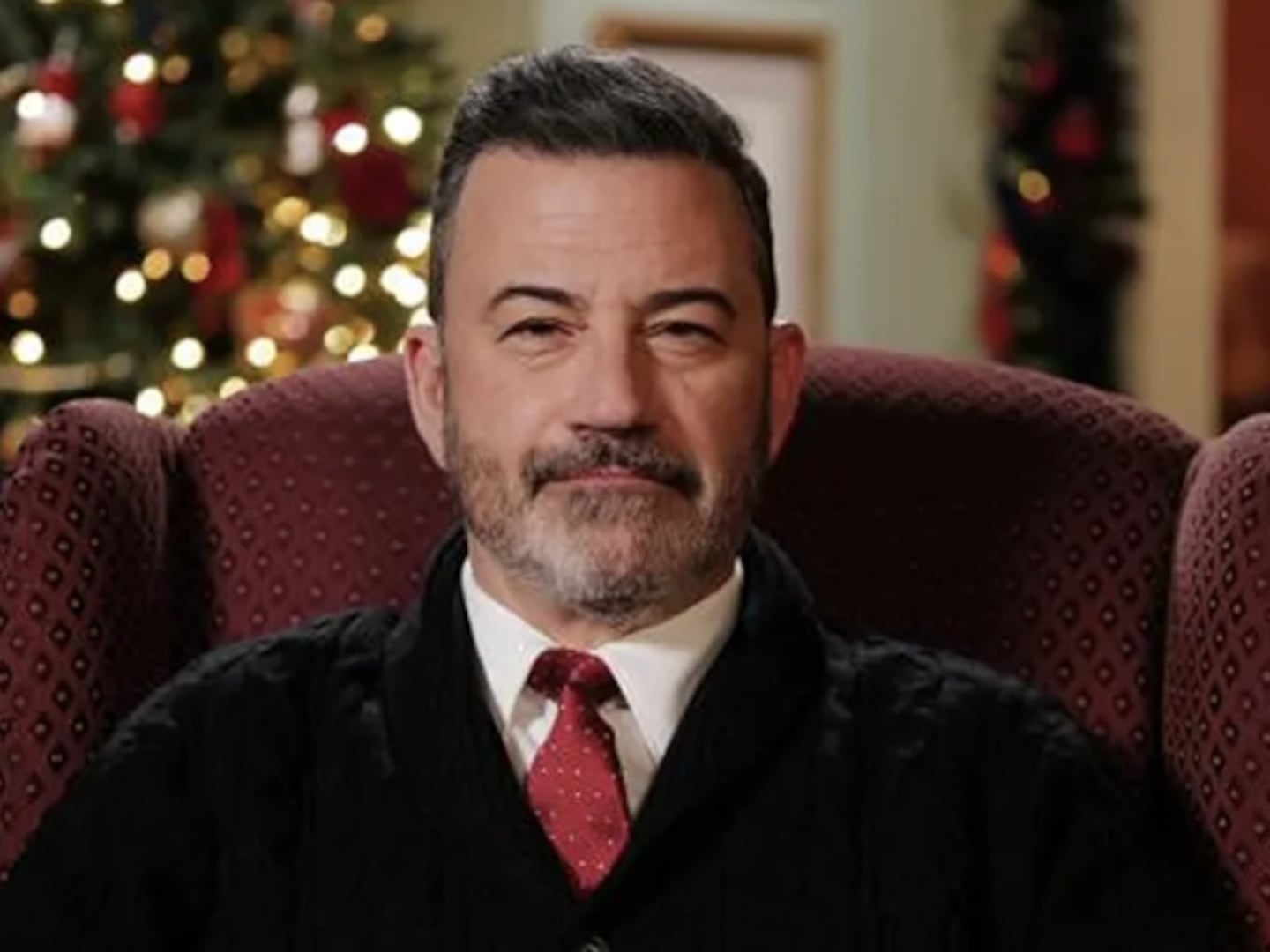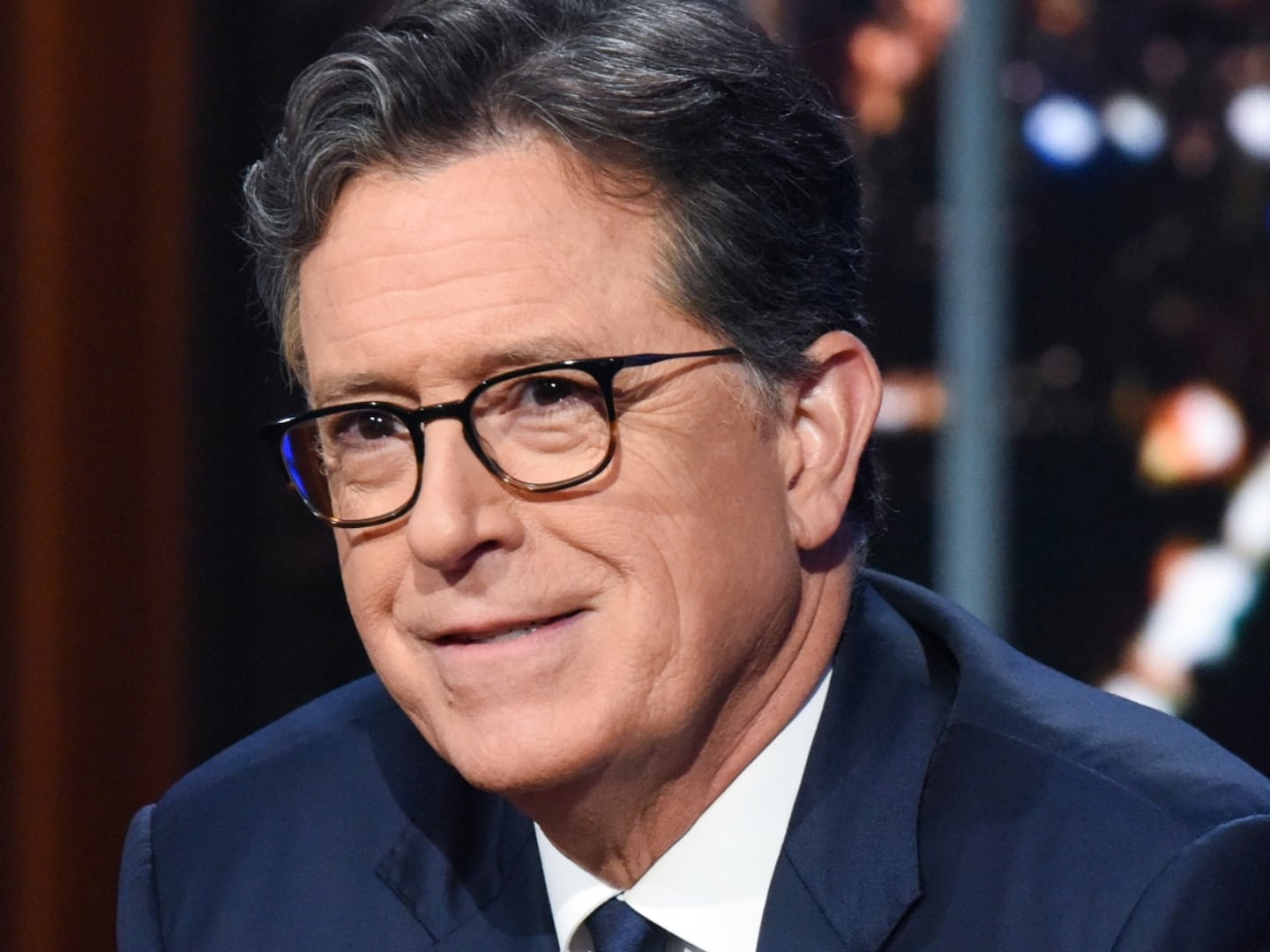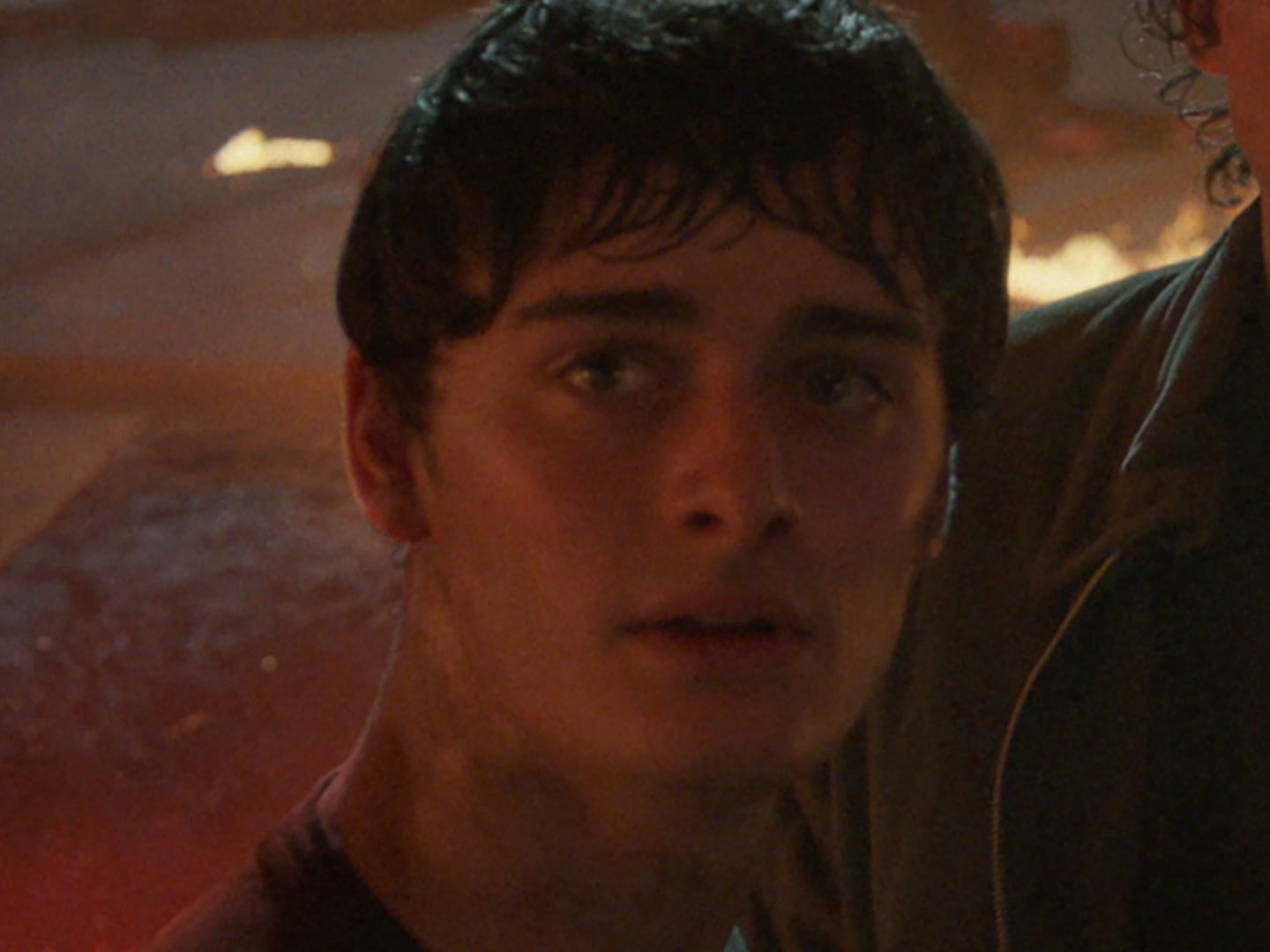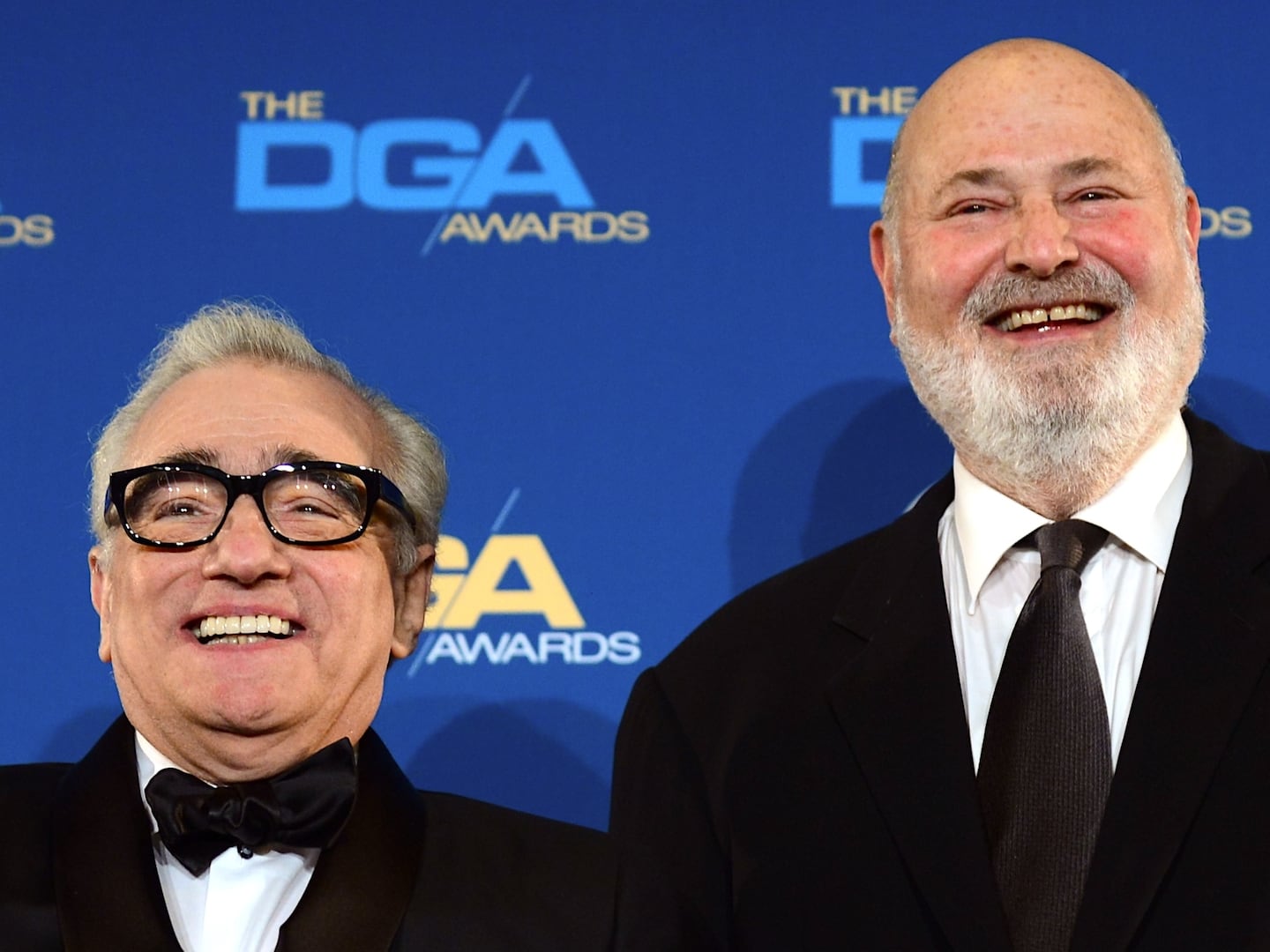Caught between the summer-movie sweet spot and the suck zone, Twisters delivers blustery chaos but, by minimizing its predecessor’s goofiness in favor of vacuous character drama, winds up only sporadically kicking into gale-force gear.
While Jan de Bont’s 1996 original was dumb as rocks and light on actual adrenalized suspense, it at least had the good sense to be over-the-top in every respect. Minari director Lee Isaac Chung, on the other hand, takes a more straightforward approach to his material, and the cost of less cartoonishness, ultimately, is meager slam-bang giddiness. Nonetheless, if it never raises one’s pulse, the film, which hits theaters July 19, does ably reconfirm the budding superstardom of Glen Powell, who—on the heels of his stellar turn in Hit Man—proves more compelling and thrilling than the catastrophic weather his hero can’t resist.
Somewhere in the middle of America, Kate Cooper (Daisy Edgar-Jones) and her crew of enthusiastic storm chasers are determined to substantiate her PhD thesis that a tornado can be quelled with polymers. Considering that Twisters pairs Edgar-Jones with Powell, it’s no surprise when Kate’s boyfriend Jeb (Daryl McCormack) and the rest of her team meet a grisly end. In the aftermath of this tragedy, Kate retreats to a meteorological desk job in New York City until her former comrade Javi (Anthony Ramos) tracks her down. Javi offers her a chance to realize her dream by working for his upstart company, whose funding and resources—courtesy of a wealthy (read: nefarious) real estate developer—put him at the forefront of the industry, and promise to come in handy for a historic upcoming outbreak of tornadoes in Oklahoma.
Back in the day, Kate was famed for her confidence and her intuition, and yet upon returning to the heartland and joining a Javi squad that goes by Wizard of Oz code names—and sticks her in the “Lion” car—she demonstrates that she’s still pretty cowardly. This frustrates both Kate and Javi, especially since they’re being shown up in the field by Tyler Owens (Powell), a hunk in a ten-gallon hat, plaid shirts, and worn jeans who resembles a modern-day Marlboro Man and calls himself a “tornado wrangler.”

Glen Powell
Universal PicturesTyler is cocky daredevil machismo personified, fearlessly racing into tornados with his ragtag mates (including Sasha Lane, Brandon Perea, and TV on the Radio frontman Tunde Adebimpe), who document his outrageous feats for a popular YouTube channel and, afterwards, sell merchandise decorated with his face. He’s an old-school Western badass pitted against new-school high-tech Javi and Kate, who despite growing up on a farm is dubbed a ”city girl” by her fetching adversary.
Kate and Tyler’s rivalry is destined to transform into romance, just as he’s preordained to help her rediscover her courage and she’s fated to lean on him in times of trouble (and learn that he’s more than a pretty face). Written by Mark L. Smith, Twisters isn’t a complicated beast, so its desire to spend plentiful down time on Kate’s survivor’s guilt and PTSD, as well as her and Tyler’s growing bond, is a frustrating waste of energy. Considering its narrative’s obviousness, its non-disaster-related concerns would have been better handled in the thick of swirling, sinister maelstroms. As it is, they put the brakes to any breakneck and comedic momentum, the latter coming mainly from a weak-stomached British reporter (Harry Hadden-Paton) who’s tagging along with Tyler.
Not helping matters, Kate is a pedestrian and unconvincing twister aficionado, never conveying the sort of wild brashness that would drive a person into the eye of the storm. Edgar-Jones is too composed and prudent a presence to resonate as a genuine member of this on-the-edge community, and that’s even truer whenever she’s paired with Powell.
Exuding sexual pheromones with every megawatt smile and arrogant retort, the actor provides a degree of leading-man charisma that the movie (and multiplex) desperately needs. That Tyler has brains as well as brawn is what eventually draws the two together, although such details are largely irrelevant, since Powell is so magnetic that it’s not difficult to understand why his crew adores him and Kate is increasingly motivated to partner with him on the operation of a lifetime.
Chung’s set pieces boast requisite pandemonium and generally live up to those found in de Bon’t hit. Where he falls short is maintaining a consistent fever pitch via aesthetic flash and colorful supporting players; Philip Seymour Hoffman’s wild-man Dusty from Twister had more personality than everyone involved in this affair combined (Powell aside). A touch of Chung’s own artistic voice shines through during an early, gentle rotating pan around Kate as she detects an incoming tornado with the aid of a dandelion. For the most part, however, Twisters may as well have been directed by any number of competent craftsmen, devoid as it is of distinctive or notable quirks and flourishes.

Glen Powell
Universal PicturesKate yearns to discover a way to quell tornados and, on multiple occasions, Twisters somberly reflects on the monumental damage they cause to structures, towns, and human lives. Such sensitivity, however, comes across as well-intentioned lip service by a film whose sole purpose for existing is exciting audiences through visions of rip-roaring ruination. During these sadder sequences, a have-it-both-ways quality seeps into the proceedings, further miring the wannabe-breezy extravaganza in a purgatory between silliness and solemnity. A bit of tacked-on anti-corporate-profiteering sermonizing is even drearier, even if it does give the story a final push to get Kate out of Javi’s spiffy truck and into Powel’s rig, which can blast fireworks and survives tornados thanks to massive drills that affix the vehicle to the ground.
When it speeds into its titanic squalls, Twisters becomes serviceably unruly. Too often, though, it lacks the ridiculous hyper-showmanship of its ancestor. Never a subtle filmmaker, de Bont knew that a project this daffy (and the protagonists who might populate it) would only work if it were designed as a de facto rollercoaster ride, its interpersonal dynamics and banter as frenzied as its action. To its detriment, Chung’s spectacular is measured to the point of enervation—save, that is, for Powell’s cowboy, who (like Hoffman’s sidekick before him) ends up being the sole memorable thing about this long-in-the-making sequel.






